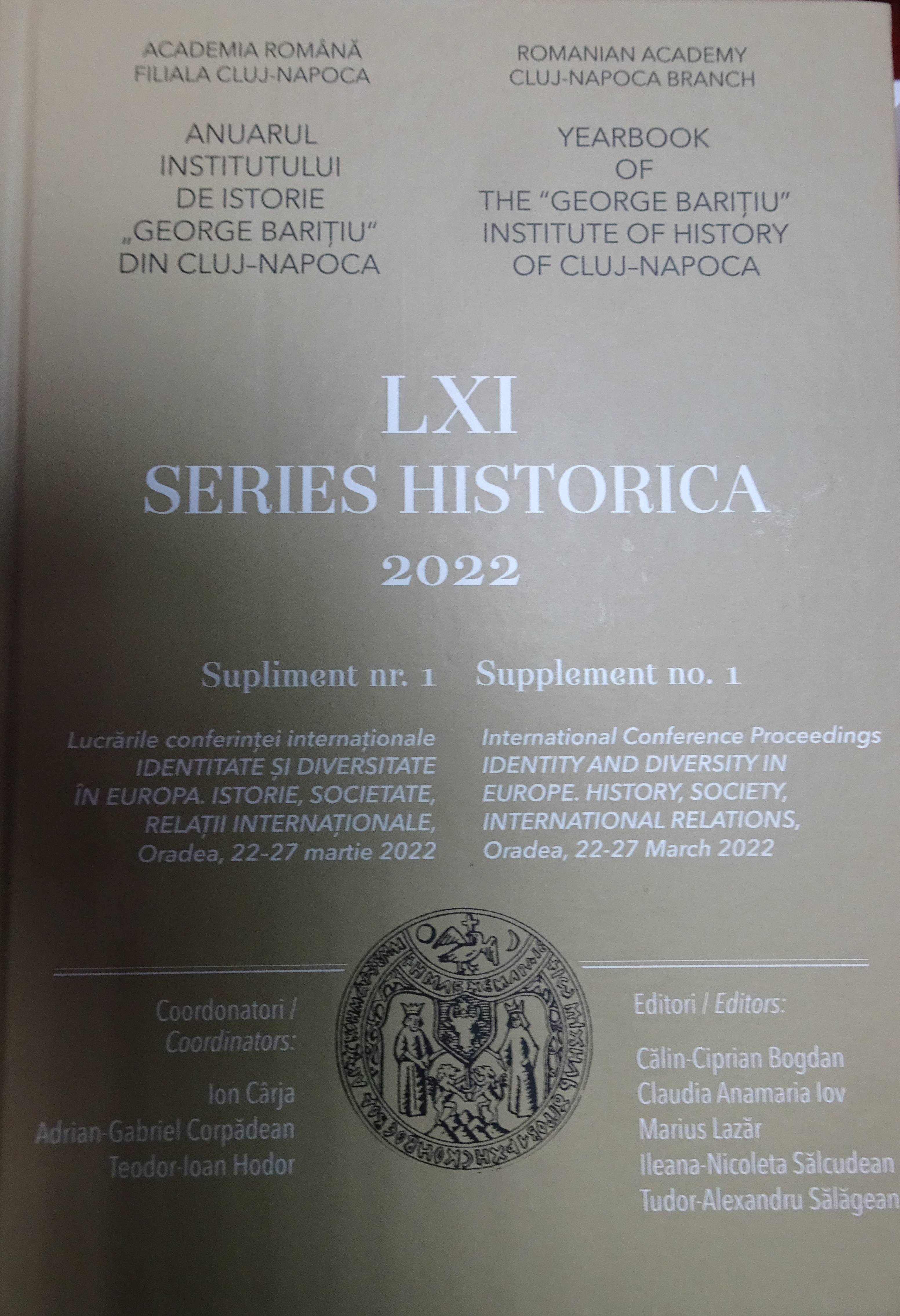Crize și identităţi culturale europene. O perspectivă panoramică asupra literaturii central–europene
European Cultural Crises and Identities. A Panoramic View of Central European Literature
Author(s): Ionuța Natalia Munteanu IorgaSubject(s): Cultural history, Recent History (1900 till today), Austrian Literature, Bulgarian Literature, Czech Literature, Hungarian Literature, Polish Literature, Romanian Literature, 19th Century
Published by: Editura Academiei Române
Keywords: Central European identity; cultural background; Central European Literature; textual patterns; history/ histories; crisis;
Summary/Abstract: The vast field of history(ies) connected with the geopolitical space of Central Europe has been written and modified, or simply deleted and reinvented several times. Populations that have been under the domination of great empires for centuries (Ottoman, German, Russian and Austrian) have borrowed from each other not only customs and traditions, but also a new mentality and a new manner of judging things. Little by little, the works of literature and various authors of many small countries were raising their own voices to create a discursive consistency. Many texts from decades ago are nowadays – besides being literary samples – also credible documents about a particular social behaviour. With making these cultural, social and political issues more visible for the public, important Central – European novelists used to create, during decades, a major cultural project about understanding the multiple factors of crisis in Europe. As a result, authors like Franz Kafka, Herman Broch, Danilo Kiš, Bruno Schulz, Robert Musil, Paul Celan, Milan Kundera were setting literary lines and terms to clarify a high range of subtle phenomena regarding politics and mentalities, dominating the space of Old Europe. Suggesting a new epic model, literary subjects directly related to the political and social collapse, a different style, and a different textual architecture, these writers were imprinting the reader’s mind with reflecting on a new epic pattern: the split of identity under the horrible effect of war and then under the political repression that followed in totalitarianism. In addition, all other sensitive issues that the Central European writers prefer to write about were passed through the filters of subjectivity and each one was revealing the experience of living in a particular area of restriction, isolation and fear. By proposing an epic product focusing on imbalances, frustrations, resentments and fragile individuals, the Central European author is revealing a powerful fiction, ready to underline the desperate need of re constructing a new and maybe a better view of a Modern European Identity – through literature and culture.
Journal: Anuarul Institutului de Istorie »George Bariţiu« - Series HISTORICA - Supliment
- Issue Year: 1/2022
- Issue No: LXI
- Page Range: 681-693
- Page Count: 13
- Language: Romanian

